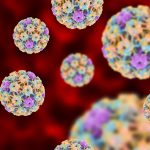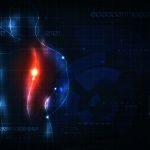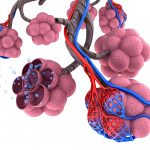Guidance on Heart Attacks and COVID-19
Node Smith, ND
Much remains unknown about COVID-19, but many studies have already indicated that people with cardiovascular disease are at greater risk of COVID-19. There also have been reports of ST-segment elevation (STE), a signal of obstructive coronary artery disease, in patients with COVID-19 who after invasive coronary angiography show no sign of the disease.
Many studies have already indicated that people with cardiovascular disease are at greater risk of COVID-19
This false signal of coronary artery disease may cause patients to undergo procedures that present unnecessary risks, especially in the COVID-19 environment, according to a special article published in Mayo Clinic Proceedings.
The article, written by a team of Mayo Clinic cardiologists and radiologists, proposes algorithms for evaluating patients and determining a course of treatment.
‘Impact of false activation of the catheterization laboratory’
“The impact of false activation of the catheterization laboratory includes inherent risks, beginning with the invasive arterial procedure itself and related care for these patients,” says J. Wells Askew, M.D., a Mayo Clinic cardiologist. In cases where patients test positive for COVID-19, the risks include respiratory failure, and potential exposure of medical staff and the downstream effects on cardiac catheterization laboratories and cardiac imaging services.
Critically important for patients experiencing a heart attack due to coronary occlusion to receive immediate and appropriate treatment
“Nonetheless, it’s critically important for patients who are experiencing a heart attack due to coronary occlusion to receive immediate and appropriate treatment,” says Dr. Askew. “There is an urgent need for an algorithm that guides triage of patients with suspected or proven COVID-19 patients with STE to determine initial invasive or noninvasive pathways.”
Acute myocardial injury, arrhythmia and shock are common in patients with acute respiratory infections
The article notes that acute myocardial injury, arrhythmia and shock are common in patients with acute respiratory infections such as COVID-19. Myocardial injury is defined by an elevated cardiac troponin level; when myocardial injury is acute and occurs in the setting of acute myocardial ischemia, it can signal a heart attack.
Algorithms, based on expert consensus, for responding to patients with STE and acute myocardial injury proposed in article
The article proposes algorithms, based on expert consensus, for responding to patients with STE and acute myocardial injury. It also provides guidance on decision-making regarding the use of an echocardiogram or a coronary CT angiogram for patients with suspected or confirmed COVID-19.
“The reported experiences from countries in which significant exposure to COVID-19 has occurred highlight the challenges we have in treating patients with COVID-19 and STE on the electrocardiogram,” says Dr. Askew. “Health care facilities need to rapidly prepare for this, so they can appropriately triage these patients with invasive or noninvasive pathways. This is critically important to minimize risks for the patient as well as risk of COVID-19 exposure to medical personnel.”
1. Courtney E. Bennett, Nandan S. Anavekar, Rajiv Gulati, Mandeep Singh, Garvan C. Kane, Yader Sandoval, Thomas A. Foley, Allan S. Jaffe, Gurpreet S. Sandhu, Malcolm R. Bell, J. Wells Askew. ST-segment Elevation, Myocardial Injury, and Suspected or Confirmed COVID-19 Patients: Diagnostic and Treatment Uncertainties. Mayo Clinic Proceedings, April 9, 2020; [link]

Node Smith, ND, is a naturopathic physician in Humboldt, Saskatchewan and associate editor and continuing education director for NDNR. His mission is serving relationships that support the process of transformation, and that ultimately lead to healthier people, businesses and communities. His primary therapeutic tools include counselling, homeopathy, diet and the use of cold water combined with exercise. Node considers health to be a reflection of the relationships a person or a business has with themselves, with God and with those around them. In order to cure disease and to heal, these relationships must be specifically considered. Node has worked intimately with many groups and organizations within the naturopathic profession, and helped found the non-profit, Association for Naturopathic Revitalization (ANR), which works to promote and facilitate experiential education in vitalism.









